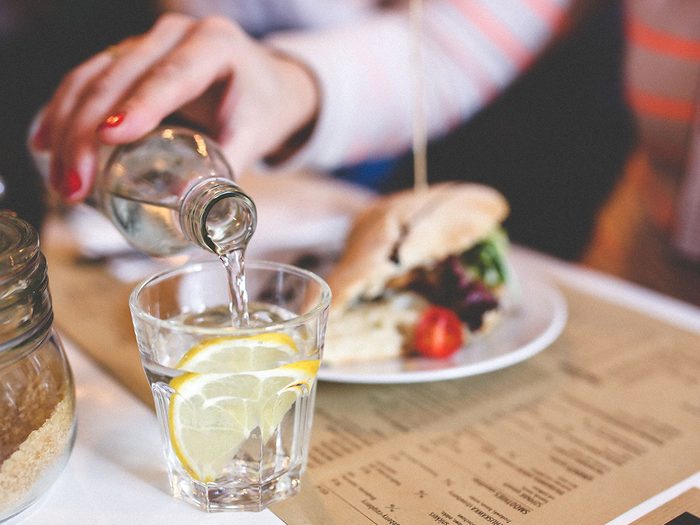
Beware bad habits
Nobody is a saint when it comes to eating right, not even dietitians. But it helps to be aware of your not-so-nutritious eating habits so you can prevent them from wreaking havoc on your health. Here are the worst offenders:
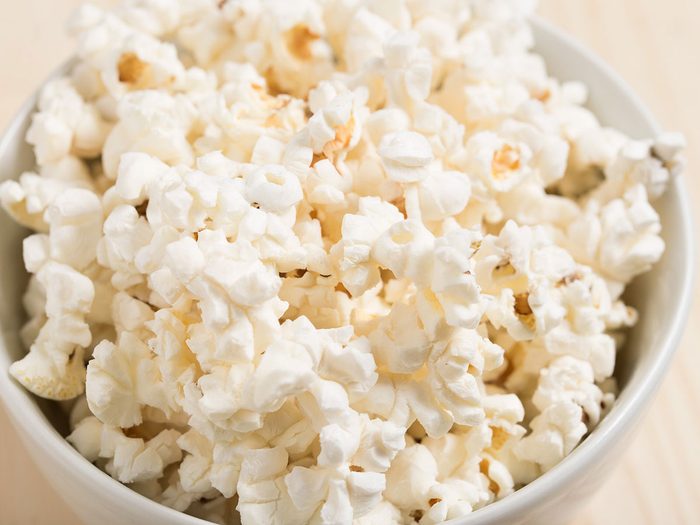
Not paying attention to your food
Multi-tasking is efficient in today’s busy world, but not when it comes to eating habits. Avoid working at your desk or chatting on the phone while you’re eating, or you’ll consume more than you intended. Put everything you eat on a plate-even if it’s a single cookie-so you have a better sense of exactly how much you’re eating. Portion out your snacks rather than eating them from the package; this way there is a defined end to the snack. (Here are a few healthy snack ideas.)

Skipping breakfast
If you skip breakfast, there is a good chance that you’ll overeat later in the day (unless you follow these rules for intermittent fasting). Plus, you’ll probably fall short of getting essential nutrients such as fibre and calcium. Research from the U.S. National Weight Control Registry (a voluntary database of people who have lost 30 pounds or more and kept it off for at least a year) found that eating breakfast is a crucial habit for keeping weight off. You should be ravenous after a seven- or eight-hour sleep. If you don’t wake up hungry, try eating dinner earlier or cutting out the evening snack.

Eating due to boredom
Before you reach for something, ask yourself if you’re really hungry. Exercising is a super way to fight boredom eating. When my daughter was taking dance lessons, some of the other moms would head over to the coffee shop for the half-hour. Instead of joining them, I went for a 5K run. If you’re feeling the urge to nibble at home, find distractions. I give myself a manicure. The smell is not appetizing, and with wet nails, food is off limits. (You can also cure your boredom with one of these brain-boosting apps.)
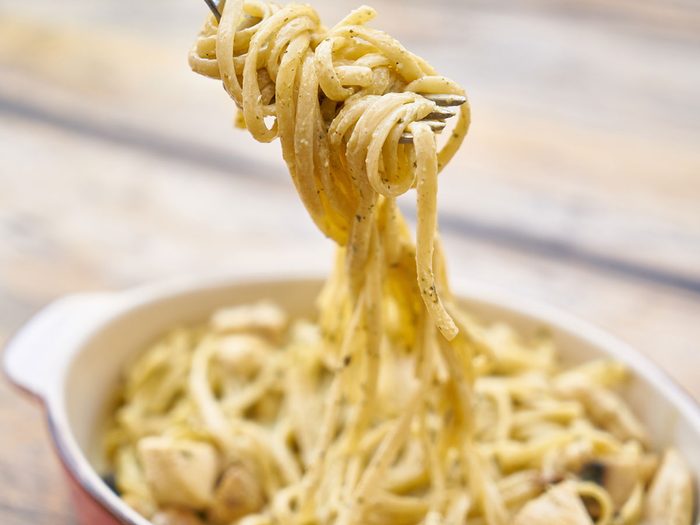
Finishing off other people’s plates
Moms do this all the time: We eat that last bite of grilled cheese sandwich or spaghetti our kids didn’t finish. But eating 100 extra calories a day could theoretically lead to a 10-pound weight gain over the year. Try serving your kids smaller portions so they’ll be less likely to leave food behind. If that still doesn’t work, wear rubber gloves while doing cleanup, to discourage you from nibbling. (See more signs you’re sabotaging your weight loss.)
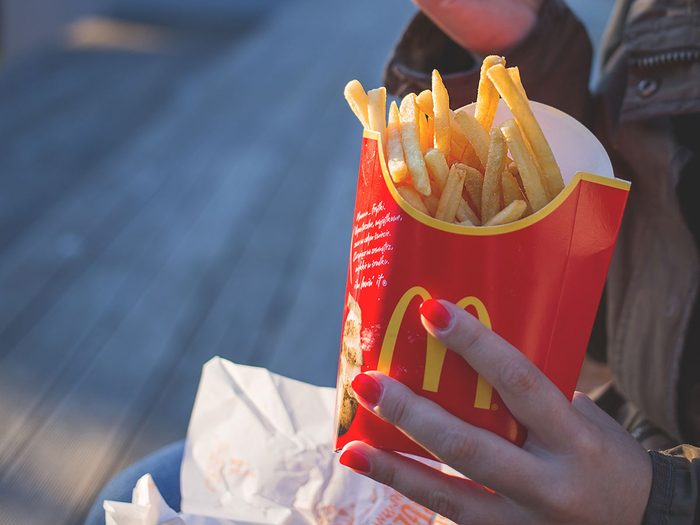
Supersizing
It is incredibly tempting to pay an extra 50 cents or a loonie for a “meal deal” or larger size of fries. Yet the more food you have in front of you, the more you’re likely to eat. Order only what you need. For example, buy just one or two Timbits as a sweet treat even though it’s a better deal if you get the 10-pack. (There are 70 calories in a Chocolate Glazed Timbit!)
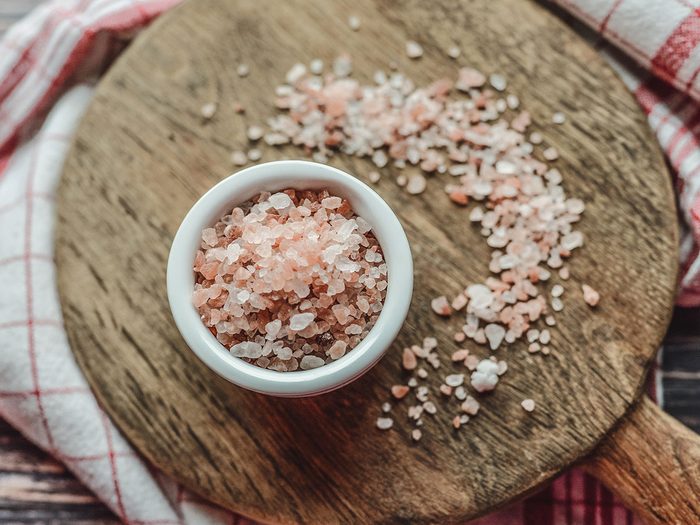
Salting your food
Too much sodium (do you know how much salt is too much?) can raise your chance of developing high blood pressure, which can lead to heart disease and stroke. Start retraining your taste buds. Instead of salt, experiment with different herbs and spices. At the grocery store, read labels and look for sodium-reduced products. If you’re eating out, ask that sauces (which can be high in salt) be served on the side.
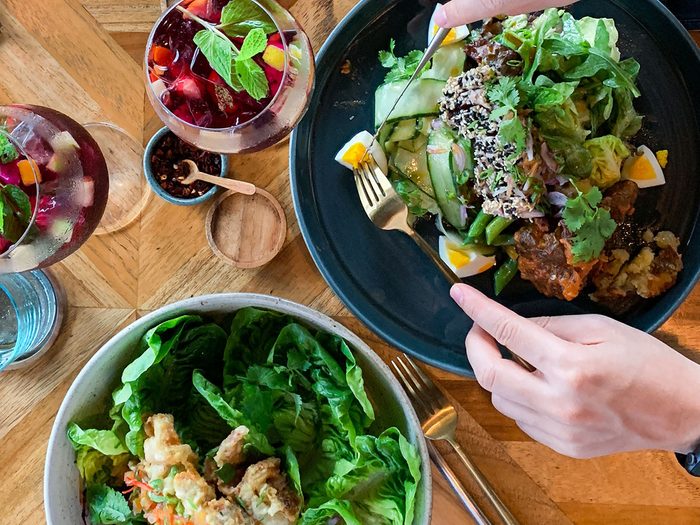
Eating only salad at lunch, or skipping lunch
Skipping any meal is bad for your energy levels, and not eating regular meals and a couple of snacks every day means you could end up overeating at suppertime. If you’re keen on salads, make sure they contain some protein, which helps you feel fuller for longer. Lean proteins such as grilled chicken breast or fish are good choices.

Depriving yourself of foods you enjoy
Smart eating is about moderation. If you go ga-ga for chocolate or chips, enjoy them occasionally. Or try healthier versions, such as dark chocolate or lower-sodium chips. Just balance out your choices so that overall you eat right. Cheesecake for dessert tonight means fresh berries for dessert tomorrow!
Next, learn about the fat-burning foods that can help you lose weight.
